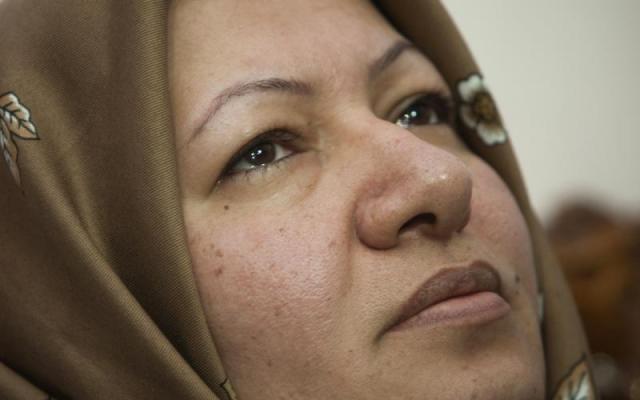Iran: Sakineh Mohammadi-Ashtiani faces imminent death by stoning

On 15 May 2006, Sakineh Mohammadi-Ashtiani was convicted of having an “illicit relationship” with two men and was sentenced to 99 lashes by Branch 101 of the Criminal Court of Osku, in East Azerbaijan Province. Then, in a September 2006 trial of a man accused of murdering her husband, Mohammadi-Ashtiani was once again accused of committing “fornication while married.” During this trial, she retracted the “confession” she supposedly made during pre-trial interrogation, alleging that she had confessed under duress, and declared her innocence. Two of the five judges found her not guilty, pointing to the lack of evidentiary proof in the case against her, and noting that she had already suffered 99 lashes due to her previous sentencing. Even though double jeopardy is illegal in Iran, the other three judges, including the presiding judge, found Mohammadi-Ashtiani guilty on the basis of the “judge’s knowledge” or “gut-feeling”, a provision in Iranian law that allows judges to make their own subjective and arbitrary rulings even in the absence of clear or conclusive evidence. Mohammadi-Ashtiani was sentenced to death by stoning on 10 September 2006.
A mother of two young children, Mohammadi-Ashtiani had her death sentence confirmed by the Supreme Court on 27 May 2007. She has been held since 2005. Her lawyer has pleaded with the Head of the Judiciary, Head of the Provincial Judiciary and members of the Amnesty and Clemency Body to commute Mohammadi-Ashtiani’s sentence to one that enables her to return to her life and children. His plea has been denied twice. In previous cases, Ayatollah Shahroudi, the former Head of the Judiciary in Iran, has commuted stoning sentences with the approval of Supreme Leader Ayatollah Khamene’i.
On 13 June, Sakineh Mohammadi Ashtiani’s lawyer, Mohammad Mostafaei, published an article entitled “Sakineh on the Threshold of Stoning” and pointed out that there is no legal obstacle to her execution being carried out at any time. Her lawyer stated that with all the complexities and confusion over her case, his client should not be executed, let alone stoned to death, and that her repentance is enough to warrant a pardon.
The newly proposed draft of the Islamic Penal Code of Iran contains provisions for annulling stoning sentences when the execution of such a sentence would damage the reputation of the Islamic Republic and lead to the degradation of Islam. However, there are serious concerns that, if passed, this provision will not necessarily put an end to the practice of stoning in Iran so long as judges continue to invoke religious jurisprudence that overrules or contravenes the proposed prohibition of stoning in the draft Code.
The Stop Stoning Forever Campaign, a grassroots initiative in Iran, has been urging Iranian officials to repeal the stoning law since its formation in 2006. There is no mention of stoning in the Qur’an and many prominent Ayatollahs, or religious scholars, have spoken in support of a ban on stoning in Iran. Many Muslim nations such as Malaysia, Indonesia, Tunisia, Algeria and others have banned death by stoning. Despite calls for abolition from around the globe, stoning is still legal in Iran and judges continue to issue and implement stoning sentences.
The Iranian Constitution forbids the use of torture, in line with Article 7 of the International Covenant on Civil and Political Rights (ICCPR) demanding that: “No one shall be subjected to torture or to cruel, inhuman or degrading treatment or punishment.”
As a state party to the ICCPR, Iran has also made an explicit and unreserved commitment under article 6(2) that if the death sentence is imposed it is to be “only for the most serious crimes.” Under international law, consensual sexual acts such as those criminalized by Iranian law under the provisions of adultery do not amount to the “most serious crimes” for which the death penalty may be imposed as an “exceptional measure.” In 2008, the United Nations General Assembly adopted a resolution calling for a worldwide moratorium on executions. Iran was among the minority of states that voted against the resolution.
The Global Campaign to Stop Killing and Stoning Women and the International Solidarity Network, Women Living Under Muslim Laws oppose all forms of cruel and degrading punishment most especially including those that are being justified in the name of religion, tradition, and/or culture. The freedom of belief does not mean freedom to kill.
| المرفق | الحجم |
|---|---|
| Sakineh_SKSW & WLUML sample letter_July 2010.doc | 27 كيلوبايت |
